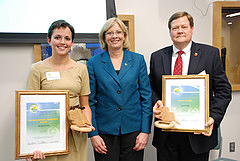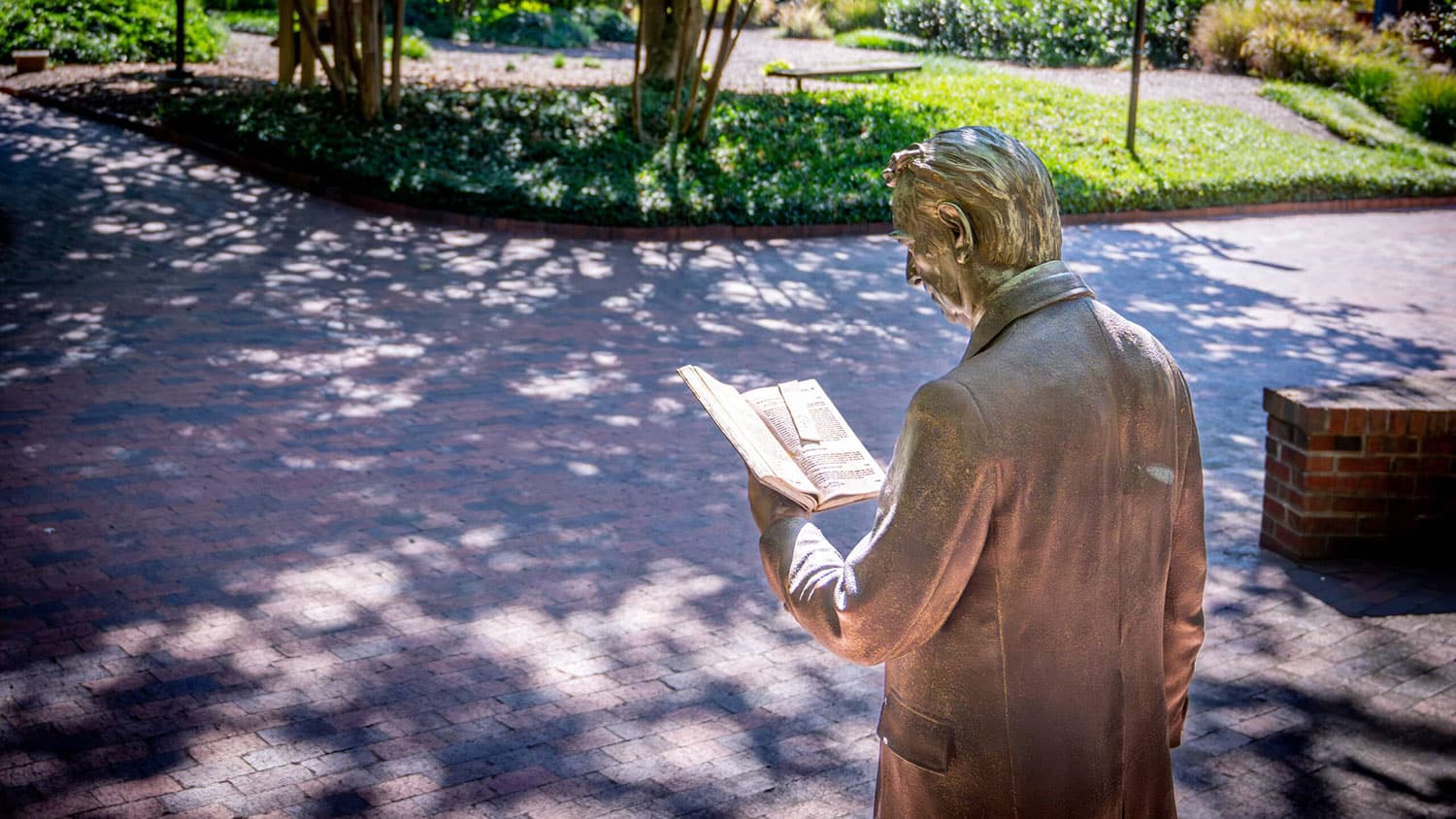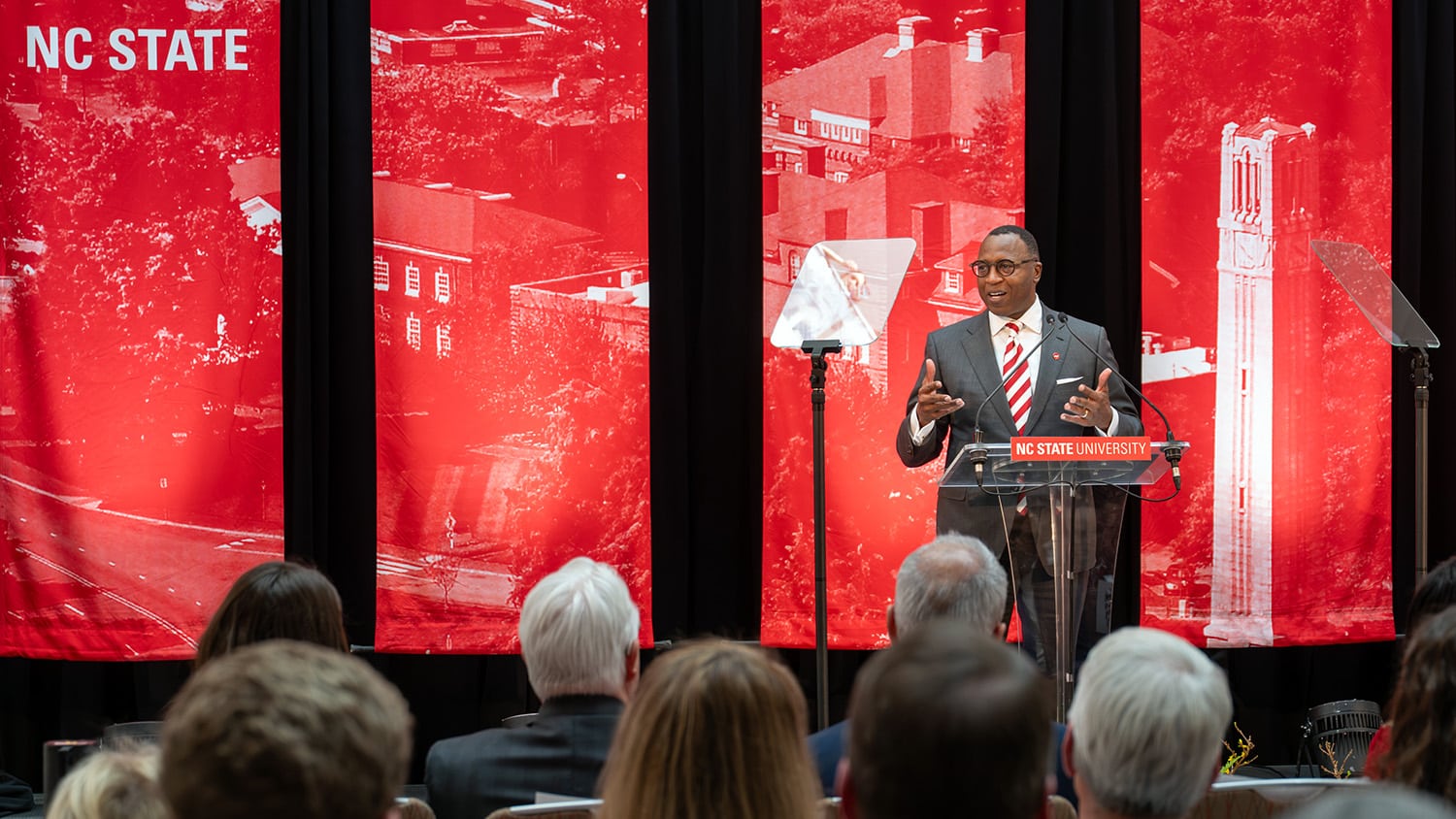Green Awards Galore For NC State
NC State’s commitment to sustainability took center stage last week with the recognition of faculty, staff and students who have done extraordinary work to reduce the university’s carbon footprint and promote responsible stewardship of scarce resources.
And, following on the heels of Earth Day, NC State also made a list of the nation’s most environmentally friendly universities.
Colby Leads on Sustainability
Jack Colby, NC State’s assistant vice chancellor for facilities operations, received the prestigious Legacy Award at the Raleigh Environmental Awards April 24 in honor of his lifelong contribution to the environment. As the university co-sustainability officer, Colby is responsible for fostering a powerful culture of sustainability at NC State.
Under Colby’s leadership, the university has achieved remarkable reductions in energy consumption while adding nearly 1 million gross square feet of new development, including resource-intensive laboratories. In recent years NC State has achieved a 47-percent decrease in water consumption, a 13-percent decrease in greenhouse gas emissions and a 5-percent decrease in energy use overall. Almost half of all trash has been diverted from landfills through reuse and recycling.
Colby also led the effort to develop and implement a campus-wide sustainability strategic plan with nearly 70 goals for the next five years.

Student Honored
Also honored at the Raleigh Environmental Awards was Rachel Conley, a senior in wildlife science, who received the Environmental Awareness Award for her leadership and teaching in the environmental field. Conley served as president of the Leopold Wildlife Club and as chair of the Sustainability Committee for Student Government. She also oversaw the “Think Outside the Brick” competition, a program that offered seed money to support student sustainability ideas.
Under her leadership of the program, students launched two community gardens, created two new environmental groups, installed hallway light timers that paid for themselves in under three months and built a solar gazebo to encourage students to work outside.
Conley has conducted several research projects and worked as a teaching assistant for two summers at the university’s Fisheries and Wildlife Summer Camp. She is a Park Scholar, an appointed member of the Campus Environmental Sustainability Team, an Alumni Association student ambassador, a member of the Quality Deer Management Association and a dendrology tutor.
Green Brick Winners
Also last week, NC State presented the annual Green Brick Awards for outstanding contributions to sustainability. The awards, sponsored by Coca-Cola, were created by the Campus Environmental Sustainability Team in 2004 (and originally called the Earthwise Awards).
This year’s student recipient is Chelsea Amato, a senior in graphic design. She has worked on a sustainable forest management project in the Borneo rainforest to discourage logging and deforestation, a honey bee advocacy campaign to decreased pesticide use and deforestation advocacy campaign.
She volunteers her design talent and time toward enhancing the sustainability of Raleigh’s Hopscotch Music Festival and helped create CompostNow, Raleigh’s food waste shuttle, allowing businesses and households to compost from their doorstep.
The staff recipient is Anna Mangum, who coordinates the E3 program in the Industrial Extension Service. The program supports the efforts of manufacturers to be sustainable in economy, energy and the environment. She also is an environmental health and safety specialist with the IES Engineering and Technology Group.
Under her leadership, NC State’s E3 program has engaged 10 communities from the mountains to the coast, assisted 21 manufacturers with more than 86 assessments, trained more than 180 workers and identified $10.2 million in savings opportunities. Due to Mangum’s efforts, the program received the National Association of Development Organizations Innovation Award.
The faculty recipient is Dr. Stephen Terry, assistant extension professor in mechanical and aerospace engineering, whose work with students has been instrumental in establishing NC State as one of the leading universities in the region for sustainable engineering.
Terry is assistant director of the Industrial Assessment Center, which has served 450 industrial facilities, made more than 3,000 energy conservation recommendations and implemented savings of over $22 million a year. He has partnered with facilities operations to apply his expertise on campus, resulting in savings of $635,000.
Terry is advisor to the Triangle student chapter of the American Society of Heating, Refrigeration and Air-Conditioning Engineers. Through his courses and mentoring, he has educated more than 525 students in energy efficient systems. He also serves as director of the Student Energy Internship Program, placing students in real-world projects.
And in a final case of good timing last week, NC State was among 322 colleges and universities honored for their commitment to environmental conservation. The Princeton Review’s annual guide to green colleges can be downloaded online.
- Categories:


